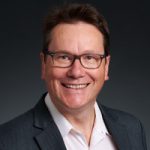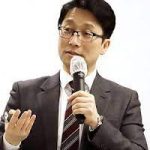Building Noah’s Ark for Migrants, Refugees, and Religious Communities – Alexander Horstmann and Jin-Heon Jung (Eds.)

Editor(s): Alexander Horstmann and Jin-Heong Jung
Publisher: Palgrave MacMillan
Year of Publication: 2017
Print Length: 300 pages
Genre: Non-Fiction / Ethnic Studies, Non-Fiction / Migration & Refugee Studies, Non-Fiction / Religious Studies
Area: Burma, Cambodia, Thailand, The United States of America (USA)
People: Haitian, North Koreans, Palestinian / Falastini, The Sahrawis, Vietnamese
Topic: Community, Culture & Society, Diaspora, Ethics & Morality, Ethnic & Ethnicity, Exile & Exodus, Humanitarian Action & Humanitarianism, Migrants, Religion, Wellbeing
Building Noah’s Ark for Migrants, Refugees, and Religious Communities examines religion within the framework of refugee studies as a public good, with the spiritual and material use of religion shedding new light on the agency of refugees in reconstructing their lives and positioning themselves in hostile environments.
Table of Contents
List of Figures
Acknowledgments
Introduction
Refugees and Religion – Alexander Horstmann and Jin-Heon Jung
Part I
Chapter 1
What Is a Refugee Religion? Exile, Exodus, and Emigration in the Vietnamese Diaspora – Janet Alison Hoskins
Chapter 2
Religious Imaginary as an Alternative Social and Moral Order—Karen Buddhism across the Thai-Burma Border – Mikael Gravers
Chapter 3
Refugee and Religious Narratives: The Conversion of North Koreans from Refugees to God’s Warriors – Jin-Heon Jung
Chapter 4
Ritual Practice, Material Culture, and Well-Being in Displacement: Ka-thow-bòw in a Karenni Refugee Camp in Thailand – Sandra H. Dudley
Part II
Chapter 5
Secular and Religious Sanctuaries: Interfaces of Humanitarianism and Self-Government of Karen Refugee-Migrants in Thai-Burmese Border Spaces – Alexander Horstmann
Chapter 6
Conflicting Missions? The Politics of Evangelical Humanitarianism in the Sahrawi and Palestinian Protracted Refugee Situations – Elena Fiddian-Qasmiyeh
Chapter 7
Humanitarian Ad-Hocracy, Transnational New Apostolic Missions, and Evangelical Anti-dependency in a Haitian Refugee Camp – Elizabeth McAlister
Part III
Chapter 8
Palestinian Steadfastness as a Mission – Leonardo Schiocchet
Chapter 9
Conversion and Community among Iu Mien Refugee Immigrants in the United States – Hjorleifur Jonsson
Chapter 10
Faith in Ethnicity: The Homeland Ties and Diasporic Formation of Vietnamese Caodaists in the United States and Cambodia – Thien-Huong Ninh
Notes on Contributors
Index

Alexander Horstmann is a social anthropologist. He received his PhD from the University of Bielefeld (2000) with a work on Buddhist and Islamic movements in Southern Thailand. He is presently Associate Professor for Southeast Asian Studies at the Department of Cross-Cultural and Regional Studies (ToRS) at the University of Copenhagen.
His research interests include the study of religious and ethnic diversity in Southeast Asia and in a comparative perspective, Islam, Theravada Buddhism, Christianity (especially Pentecostalism and Charismatic Movements), autochthonous religion (spirit beliefs), modernity, violence, and border régimes. He is interested in the manifestations of world religions in the local context and in the encounters of the local and the global, globalization of religion and the impact of modern media.
Source: https://www.iias.asia/profile/alexander-horstmann
More from Alexander Horstmann in this library, click here.

Jin-Heon Jung is a sociocultural anthropologist working on Korean Christian global networks. He studied Korean Literature and Cultural Anthropology in Seoul, Korea, and finished his PhD in Anthropology at the University of Illinois at Urbana-Champaign. His dissertation, ‘Free to Be: North Korean Migrants and South Korean Evangelical Church,’ shows that, while past anticommunist regimes have publicly celebrated North Korean defectors as national heroes and heroines, today they are empowered to criticize the North in the evangelical church and within the logic of conversion. Dr Jung’s interests lie in Christianity/religions, nationalism, refugee, human rights, multiculturalism, global capitalism and public anthropology. Jin-heon has also worked as a program director at an NGO making alternative education programs for young North Korean migrants in Seoul, Korea.
Source: https://www.mmg.mpg.de/person/60579/2553
More from Jin-Heon Jung in this library, click here.
